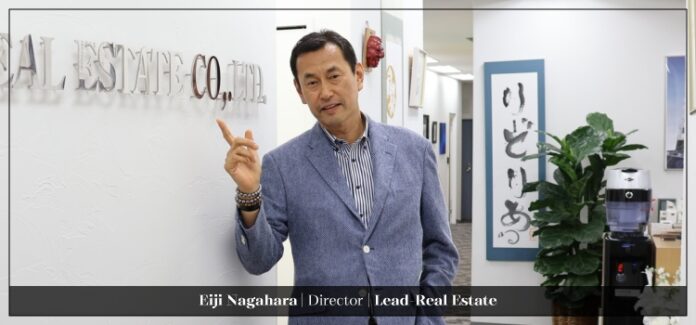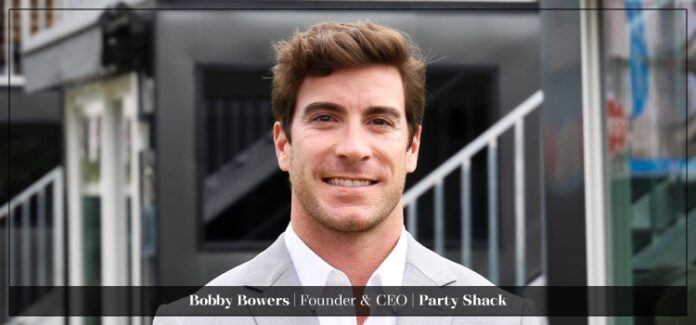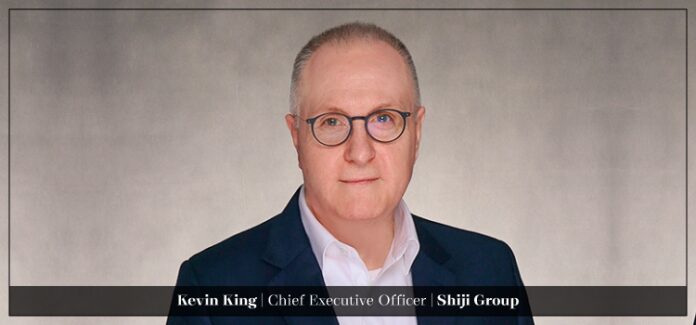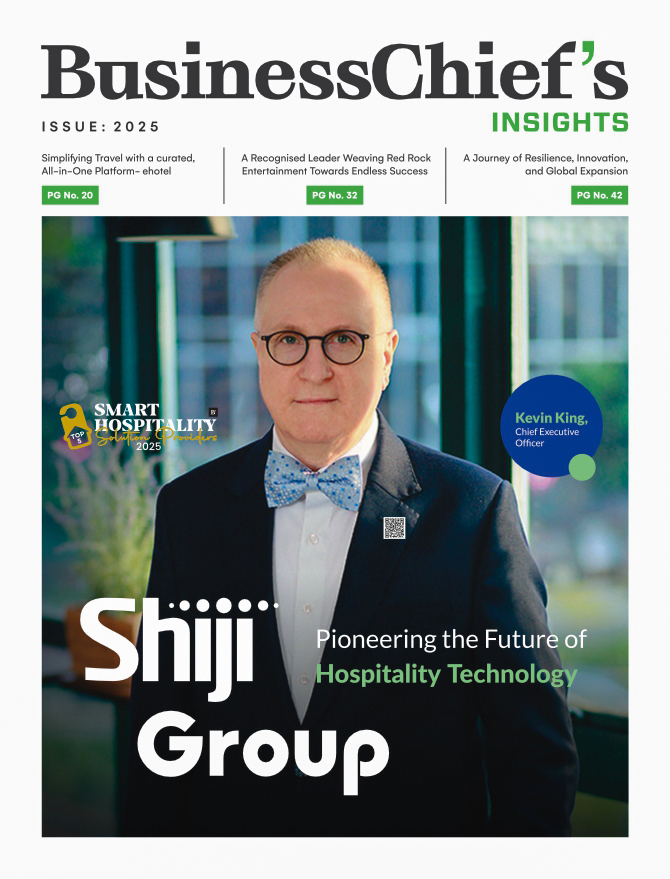In an increasingly digital world where guest expectations are constantly evolving, Shiji Group has emerged as a global leader in providing innovative, integrated technology solutions that redefine hospitality operations. Established in 1998 by visionary entrepreneur Mr. Li Zhongchu, the company began its journey in the APAC region, driven by a mission to address the gaps in the country’s rapidly growing hospitality and retail sectors. Today, Shiji has expanded far beyond its humble origins, evolving into a multinational corporation that serves not only hotels but also food service, retail, and entertainment industries worldwide.
A Journey Fueled by Innovation and Growth
The origin of Shiji Group is deeply rooted in a specific vision: to provide advanced technology solutions that would enable hotels and retailers to deliver exceptional guest experiences while streamlining operational efficiency. In the late 1990s, the hospitality sector was burgeoning in the APAC region, yet the technology solutions available were woefully inadequate. It was in this context that Mr. Li saw an opportunity to make a difference, founding Shiji with a focus on developing solutions that would address the growing demand for better service and more effective management tools.
From the very beginning, Shiji’s growth has been fueled by a relentless drive to innovate. What began as a provider of hardware and software solutions for hotels and retailers in the APAC region has expanded into a global operation with over 5,000 employees, 80 subsidiaries, and more than 91,000 hotels under its service umbrella. Shiji’s cloud-native platforms are now used in over 31 countries, and the company’s presence extends to 200,000 restaurants and 600,000 retail outlets worldwide.
A key moment in Shiji’s evolution came when the company expanded its operations into Europe and North America, a move that was bolstered by strategic acquisitions and collaborations with major hotel brands. In addition to organic growth, these acquisitions have helped solidify Shiji’s position as a leader in the hospitality technology space, bringing its innovative solutions to a global audience. Among its most prominent partnerships are those with hotel groups such as IHG, Peninsula Hotels, and Langham Hospitality Group, showcasing Shiji’s ability to cater to the needs of some of the most prestigious names in the industry.
A Suite of Innovative Solutions
Shiji Group’s success can be attributed to its broad and deep range of products and services, which focus on enhancing guest experiences while making day-to-day operations more efficient for businesses. The company’s Property Management System (PMS) is one of its flagship products, designed with a revolutionary guest-centric approach. Unlike traditional systems that focus primarily on reservations, Shiji’s PMS centers on creating a single guest profile. This allows hotel chains to capture guest data across multiple properties, enabling a truly personalized experience for each guest.
Imagine a frequent traveler who stays at different hotels within the same group in various parts of the world. With Shiji’s PMS, their preferences, such as room type, dining habits, or even special requests, are accessible to staff across all properties, ensuring a consistent, personalized experience. This not only increases guest satisfaction but also strengthens brand loyalty, as guests feel recognized and valued no matter where they are.
Shiji also offers a robust Point of Sale (POS) solution, which is widely adopted in hotel restaurants and retail operations. This cloud-based POS system integrates seamlessly with other property management tools, allowing for smooth operations, whether guests are ordering room service, dining in the hotel restaurant, or purchasing retail items on-site. The system’s flexibility enables hotels to scale their services without compromising on efficiency, with features like real-time inventory management, customizable interfaces, and integration with the broader Shiji ecosystem.
Another vital aspect of Shiji’s offerings is its Guest Experience and Reputation Management solutions. These tools allow hotels to gather and analyze guest feedback in real-time, making it easier to respond to guest concerns and improve service quality. In an era where online reviews can make or break a hotel’s reputation, having the ability to monitor and manage this feedback is crucial. Shiji’s tools empower hotels to enhance their service standards continuously, which in turn boosts their online reputation and leads to higher occupancy rates.
Additionally, Shiji’s Distribution Platforms provide hotels with sophisticated tools to manage room availability and pricing across multiple online travel agencies (OTAs), global distribution systems (GDS), and direct bookings. With these advanced systems in place, hotels can maximize revenue by optimizing pricing strategies and ensuring that room availability is accurately reflected across all channels.
Technological Leadership
At the core of Shiji’s offerings is a deep commitment to innovation, which is evident in its technology-first approach. The company’s cloud-native systems, built in collaboration with AWS, are designed for security, scalability, and seamless integration. One of the key innovations that Shiji has introduced is the aforementioned Single Guest Profile, which centralizes all guest data across multiple properties. This allows hotels to go beyond simply managing reservations and instead focus on creating highly personalized experiences that reflect each guest’s unique preferences.
In addition to cloud-native solutions, Shiji is leveraging the power of real-time data analytics and AI-driven automation to further enhance the hospitality experience. For instance, the integration of AI into Shiji’s systems enables hotels to anticipate guest needs and automate routine processes, such as check-ins and check-outs, reducing the burden on front desk staff and allowing them to focus on delivering high-quality, personalized service.
Moreover, Shiji is constantly exploring new ways to improve the mobile experience for both guests and staff. Mobile-first solutions such as contactless check-ins, mobile room keys, and in-room mobile ordering are becoming increasingly popular as guests seek more convenience and hotels look to streamline operations. By integrating these technologies into its broader platform, Shiji is helping hotels stay ahead of the curve and meet the evolving demands of tech-savvy travelers.
Addressing the Industry’s Challenges
The hospitality industry faces numerous challenges, from managing guest data securely to adapting to ever-changing market conditions. Shiji has positioned itself as a leader in addressing these issues. For instance, the rise of data privacy regulations such as the General Data Protection Regulation (GDPR) in Europe has forced hotels to rethink how they handle sensitive guest information. Shiji’s systems are built with security at the forefront, ensuring that hotels can comply with these regulations while still delivering exceptional service.
Beyond data security, one of the key challenges facing the industry is the need for system integration. Many hotels operate with a patchwork of different technologies, which can lead to inefficiencies and gaps in service delivery. Shiji addresses this issue by offering solutions that integrate seamlessly with existing systems, providing hotels with a comprehensive, end-to-end platform that covers everything from property management to guest services.
Expanding Global Impact
As a global company with over 54 offices worldwide, Shiji is uniquely positioned to cater to the diverse needs of different regions. The company’s deep understanding of both local markets and international hospitality trends allows it to provide tailored solutions that meet the specific challenges faced by hotels in various parts of the world. Shiji’s global reach is further supported by its commitment to providing around-the-clock customer support, ensuring that its clients have access to the assistance they need, no matter their location.
The company’s partnerships with prestigious hotel chains such as Peninsula Hotels and Langham Hospitality Group are a testament to its global impact. These collaborations have allowed Shiji to showcase the effectiveness of its systems in delivering personalized guest experiences at some of the world’s most luxurious hotels. For example, the Peninsula Hotels has implemented Shiji’s Enterprise Platform PMS, allowing it to offer a seamless, tailored experience for guests across its entire portfolio.
The Road Ahead
Looking to the future, Shiji Group has ambitious plans for further growth and innovation. The company’s strategic focus over the next 5-10 years includes enhancing the interoperability of its systems, enabling hotels to connect various platforms more efficiently. Shiji is also placing a strong emphasis on sustainability, with plans to develop technology solutions that help hotels reduce their environmental impact, such as energy management systems and paperless check-ins.
Furthermore, Shiji is committed to advancing AI-driven personalization, allowing hotels to offer even more tailored experiences to their guests. By leveraging machine learning and AI, Shiji aims to transform the way hotels interact with their guests, making hospitality more intuitive, efficient, and enjoyable.
Conclusion
As a global leader in hospitality technology, Shiji Group continues to push the boundaries of what’s possible in the industry. With a focus on innovation, integration, and personalized guest experiences, the company is helping hotels worldwide deliver the kinds of seamless, memorable experiences that today’s travelers expect. Through its advanced solutions, Shiji is not only transforming the hospitality landscape but also setting the stage for the future of smart, data-driven guest services.











